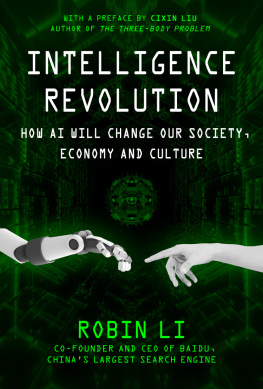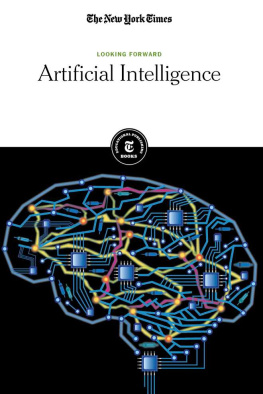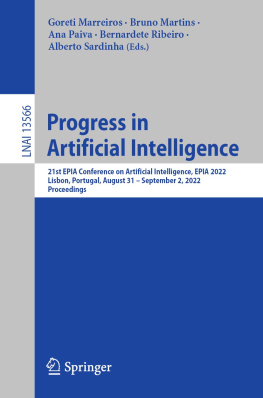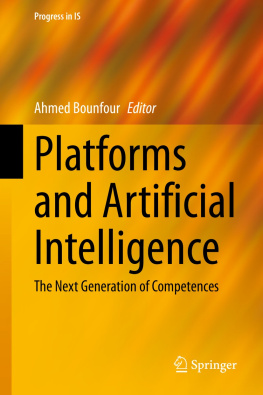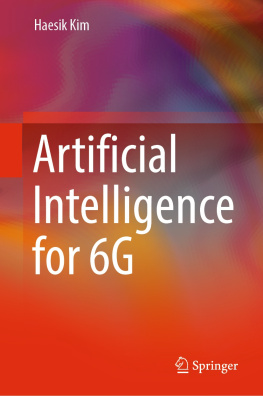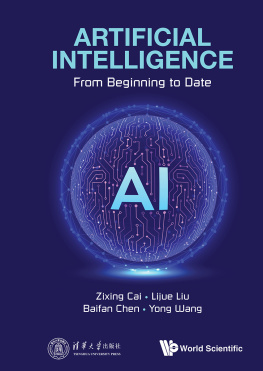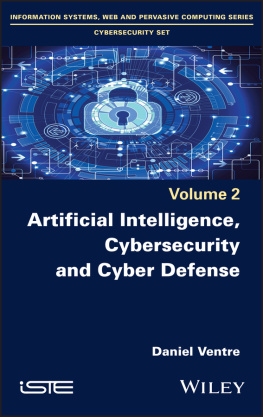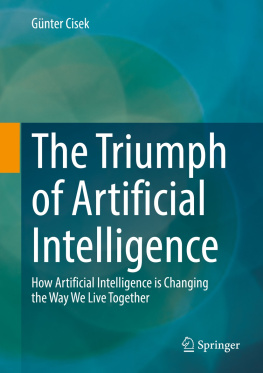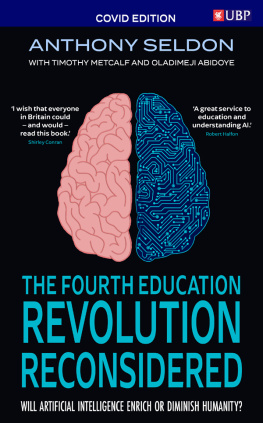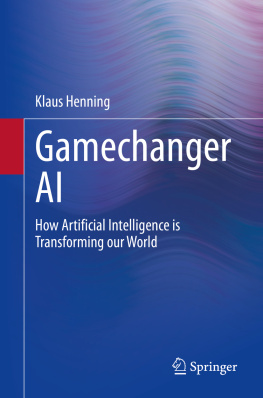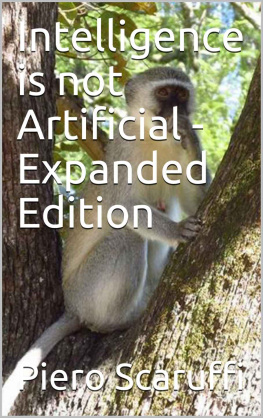robin Li - Artificial Intelligence Revolution
Here you can read online robin Li - Artificial Intelligence Revolution full text of the book (entire story) in english for free. Download pdf and epub, get meaning, cover and reviews about this ebook. year: 2020, publisher: Skyhorse, genre: Politics. Description of the work, (preface) as well as reviews are available. Best literature library LitArk.com created for fans of good reading and offers a wide selection of genres:
Romance novel
Science fiction
Adventure
Detective
Science
History
Home and family
Prose
Art
Politics
Computer
Non-fiction
Religion
Business
Children
Humor
Choose a favorite category and find really read worthwhile books. Enjoy immersion in the world of imagination, feel the emotions of the characters or learn something new for yourself, make an fascinating discovery.
Artificial Intelligence Revolution: summary, description and annotation
We offer to read an annotation, description, summary or preface (depends on what the author of the book "Artificial Intelligence Revolution" wrote himself). If you haven't found the necessary information about the book — write in the comments, we will try to find it.
Artificial Intelligence Revolution — read online for free the complete book (whole text) full work
Below is the text of the book, divided by pages. System saving the place of the last page read, allows you to conveniently read the book "Artificial Intelligence Revolution" online for free, without having to search again every time where you left off. Put a bookmark, and you can go to the page where you finished reading at any time.
Font size:
Interval:
Bookmark:

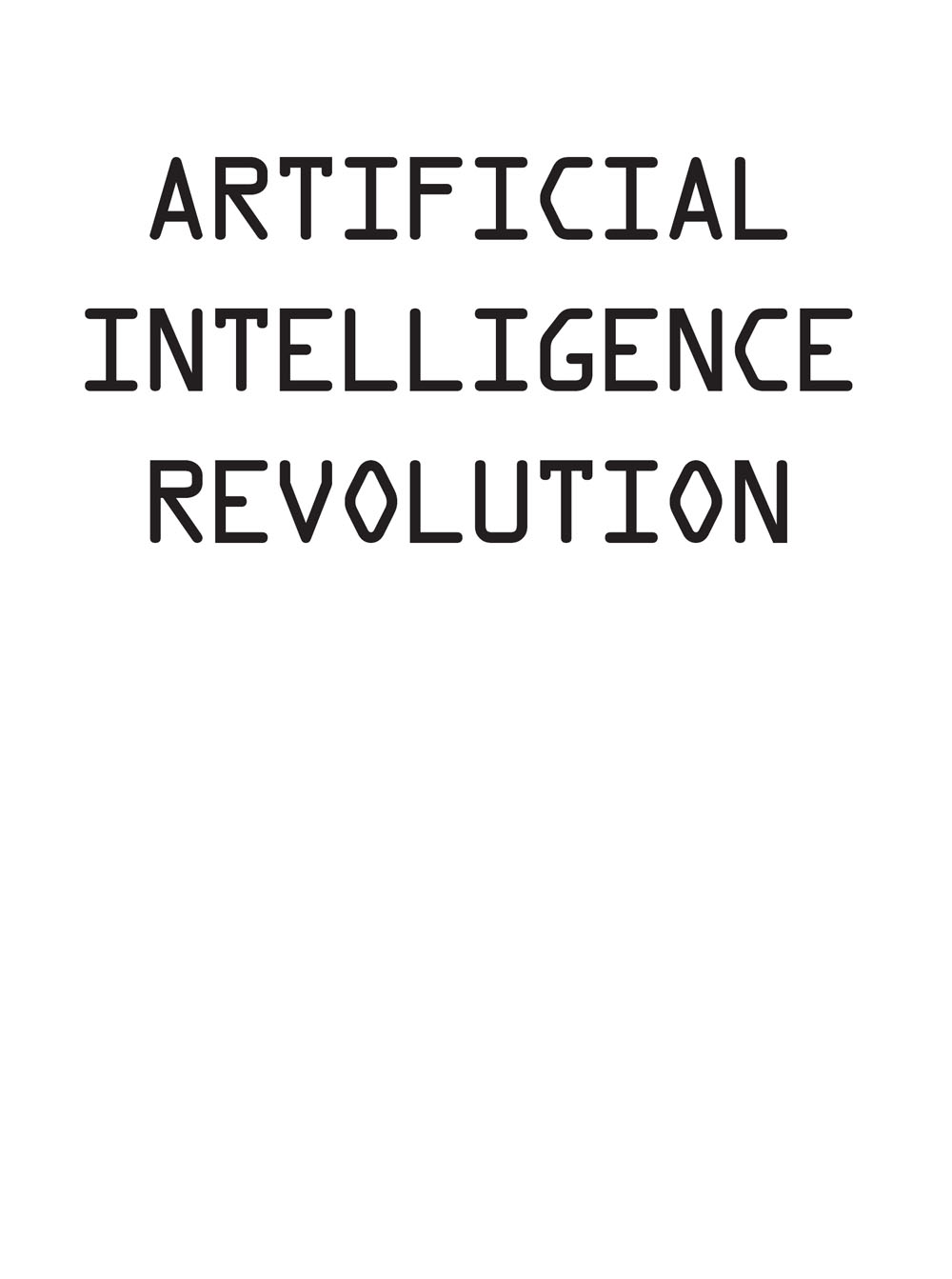

Copyright 2020 by Robin Li
Preface copyright 2020 by Cixin Liu
All rights reserved. No part of this book may be reproduced in any manner without the express written consent of the publisher, except in the case of brief excerpts in critical reviews or articles. All inquiries should be addressed to Skyhorse Publishing, 307 West 36th Street, 11th Floor, New York, NY 10018.
Skyhorse Publishing books may be purchased in bulk at special discounts for sales promotion, corporate gifts, fund-raising, or educational purposes. Special editions can also be created to specifications. For details, contact the Special Sales Department, Skyhorse Publishing, 307 West 36th Street, 11th Floor, New York, NY 10018 or .
Skyhorse and Skyhorse Publishing are registered trademarks of Skyhorse Publishing, Inc., a Delaware corporation.
Visit our website at www.skyhorsepublishing.com.
10 9 8 7 6 5 4 3 2 1
Library of Congress Cataloging-in-Publication Data is available on file.
Cover design by Brian Peterson
Print ISBN: 978-1-5107-5299-3
Ebook ISBN: 978-1-5107-5300-6
Printed in the United States of America
The whole world is excited about the upcoming artificial-intelligence revolution. I had a similar feeling about twenty years ago, when I was in Silicon Valley experiencing the beginning of the Internet boom.
This also reminds me of when I was studying artificial intelligence earlier in the United States. My major in China was information management, and when I moved to the United States from China, I studied computer science. I was not very interested in hardware-related courses, but when we talked about artificial intelligence, I became particularly excited. I thought this must be the future of computer science and even humanity. I got high scores in this course, but after I finished and began to do some research, I found that neither did artificial intelligence have many practical application opportunities nor could it solve actual problems. Everyone was full of hope for artificial intelligence, but when put into the market, it always immediately failed. So, at that time I was disappointed and had to bury this interest in my heart.
But this dream never disappeared. With the development of the computer network industry, and especially the progress of search engines, my hope was renewed.
Over the decade of search-engine development, some industry insiders and I have gradually realized that artificial intelligence is beginning to make a difference. Search engines have been lifting the ceiling of computer science. Almost every level of computer science, from hardware to software algorithms, even data, all are constantly being improved, and one day they will factor in the field of artificial intelligence. Artificial intelligence was found to be effective when we tried it on search engines, which is the opposite of prior AI applications in any field.
But why is it effective today? Our summary is that massive data, increasingly powerful computing, and lower computational costs have come together in the search field, paving the way for artificial intelligence to return.
If we say that the Internet changes the information infrastructure, then the mobile Internet has changed the way resources are configured. It penetrates into every aspect of human life like peripheral nerves, not only producing massive amounts of data that scientists have dreamed of but also spawning cloud-computing methods, which aggregate the computation power of millions of servers, so that the computation power has been rapidly improved. The machine-learning methods that already had been invented by scientists can function well on the Internet, providing automatic shopping recommendations and reading information, as well as more accurate network translation and speech recognition based on users interests. The Internet is becoming smarter and smarter. Artificial intelligence draws strength from the Internet, finally starting a major revolution comparable to the previous technological revolutions.
In the face of such changes, many leading figures in the computer field have begun to explore the potential risks. At the same time, many professionals are questioning its ability to deliver miracles. So, in the field of public opinion, there are two kinds of voices: when artificial intelligence reaches the peak of development, we hear the concern that human beings will be ruled by machines, and when artificial intelligence will fall into a developmental trough, some will say, Its just a different kind of innovation bubble.
For such a fast-growing new technology, people have different views. But as a pursuer and believer of technology, I am convinced that we can neither overestimate the short-term force of technology nor underestimate its long-term influence.
In terms of vertical development, the industry usually divides artificial intelligence into three phases: the first phase is weak artificial intelligence, the second phase is strong artificial intelligence, and the third phase is called super artificial intelligence. In fact, all current artificial intelligence technologies, no matter how advanced they are, fall in the category of weak artificial intelligence and can only perform like humans in one certain field, instead of surpassing us.
Theorists of AI are afraid that machines may eventually control humans when, one day, super artificial intelligence comes. In this regard, I may be more conservative than most people. In my opinion, artificial intelligence will never reach that step, and it is very likely that strong artificial intelligence will not be realized. In the future, machines will still only largely reach human capabilities, but they will never surpass them.
Of course, just the capability to be infinitesimally close to that of humans can produce enough subversion, because, in some respects, computers are indeed much stronger than people. For example, consider their memory ability: the Baidu search engine can memorize hundreds of billions of web pages, including each word on it, which is in fact impossible for humans. Another example is its computing power: it can write poetry. Enter your name into Baidus mobile phone app, Write Poems for You, and hit the Enter key, and a poem will be created before you even have the chance to react. Such a speed is difficult to achieve even for seven-step geniuses. However, in many areas, such as emotion and creativity, machines cannot transcend human beings.
More important, in the relationship between technology and people, the intelligence revolution and the previous technological revolutions are fundamentally different. From the steam revolution to the electrical revolution and then to the information-technology revolution, people learned and innovated all three technological revolutions by themselves, but in the case of the artificial-intelligence revolution, with the help of deep learning, the world becomes a place where people and machines learn and innovate together. In the first three technological revolution eras, people learned and adapted to machines, but in the era of artificial intelligence, machines are actively learning and adapting to humans. When the steam age and the electrical age had just begun, many people were afraid of new machines because of the drastic changes in job opportunities and the fact that people had to adapt to the machine and the assembly line. In this artificial-intelligence revolution, machines can, with initiative, learn and adapt to human beings. One of the essences of machine learning is to find out the rules from a large number of human-behavior data and provide different services according to the different characteristics and interests of each person.
Next pageFont size:
Interval:
Bookmark:
Similar books «Artificial Intelligence Revolution»
Look at similar books to Artificial Intelligence Revolution. We have selected literature similar in name and meaning in the hope of providing readers with more options to find new, interesting, not yet read works.
Discussion, reviews of the book Artificial Intelligence Revolution and just readers' own opinions. Leave your comments, write what you think about the work, its meaning or the main characters. Specify what exactly you liked and what you didn't like, and why you think so.

